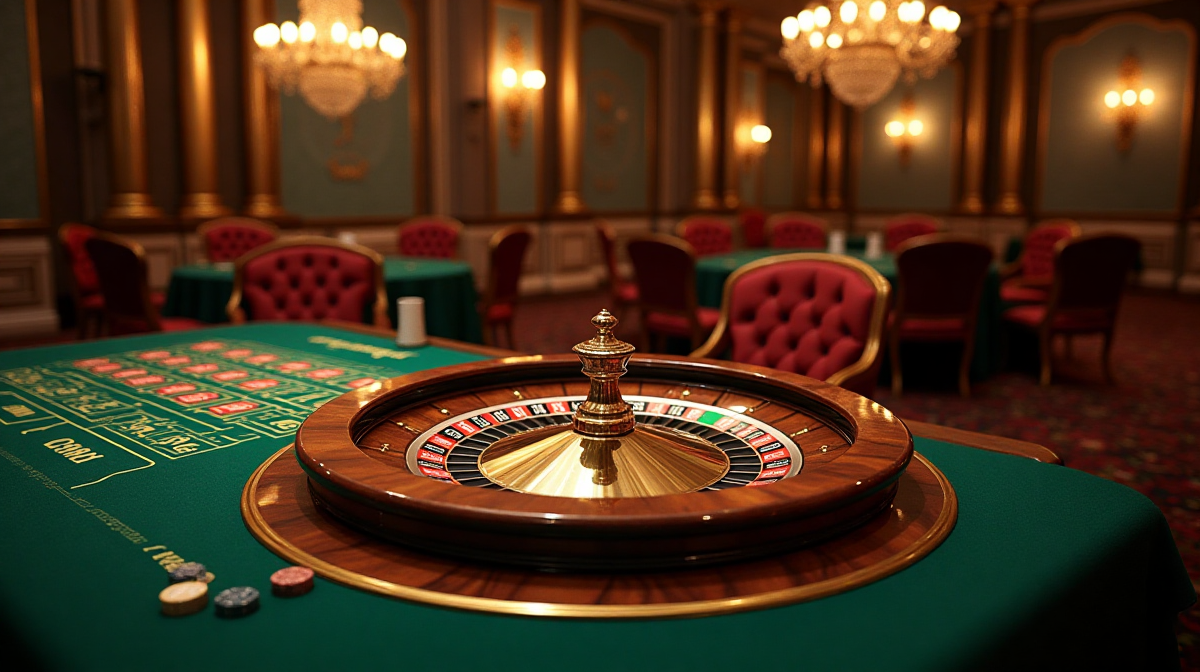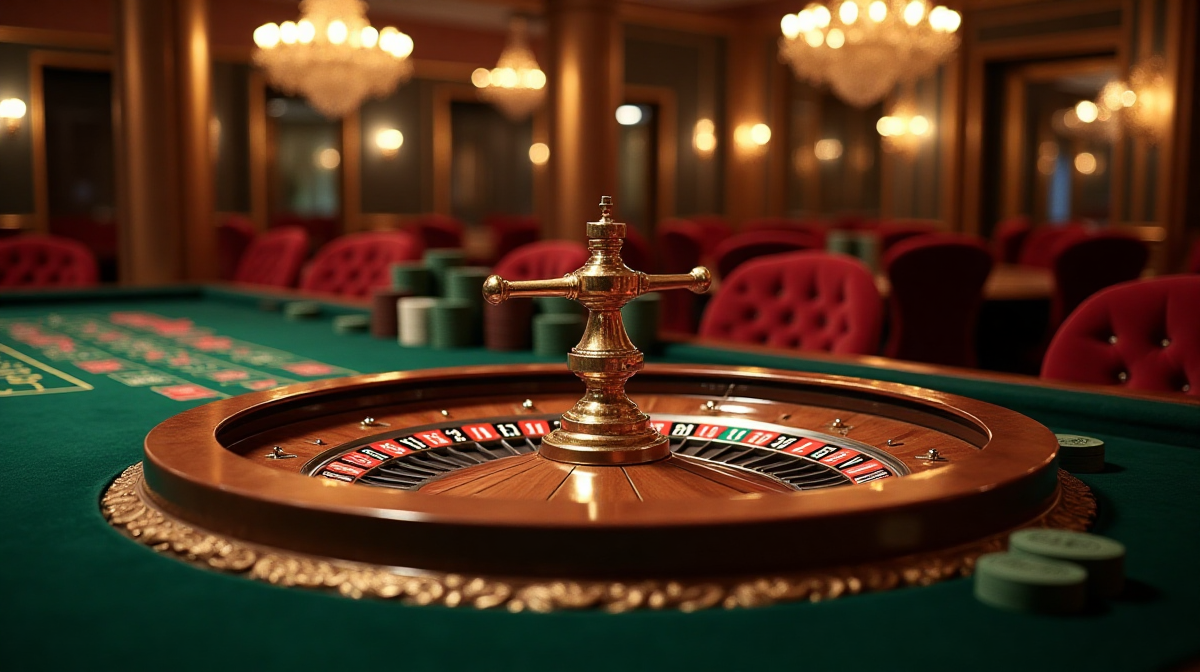5 Roulette Skills Every Player Needs
Beyond Luck: The Role of Skill in Roulette
Roulette, often perceived as a game of pure chance, actually rewards players who develop and implement specific skills. While luck certainly plays a part, understanding the nuances of the game, managing your bankroll effectively, and maintaining emotional control can significantly improve your odds and overall experience. Many players head to platforms like sportingbet .com hoping for instant wins, but consistent success requires more than just a lucky streak.
Debunking Roulette Myths – What Really Works?
Numerous myths surround roulette, promising guaranteed winning strategies. These are often misleading and can lead to substantial losses. Forget about “predicting” the next number; focus instead on understanding probabilities, managing risk, and employing disciplined betting strategies. A solid understanding of the game is the first step towards enjoying roulette responsibly, and even potentially improving your results at sites like sportingbet.
The Different Roulette Variations & Skill Applications
The type of roulette you play influences your strategy. European Roulette, with a single zero, offers better odds than American Roulette, which has both a zero and a double zero. French Roulette often includes the “La Partage” and “En Prison” rules, further enhancing player chances. Skills like bankroll management and understanding payouts are universally applicable, but the specific betting systems you choose might vary depending on the roulette variation.
Bankroll Management – Protecting Your Capital
Defining your Bankroll & Risk Tolerance
Before you even consider placing a bet, determine your bankroll – the total amount of money you’re willing to risk. Then, assess your risk tolerance. Are you comfortable with aggressive betting or do you prefer a more conservative approach? This will dictate your bet sizes and overall strategy. If you're looking for a platform to start, login to sportingbet offers a secure environment to practice.
Determining Optimal Bet Sizes
A common rule of thumb is to bet no more than 1-5% of your bankroll on any single bet. This helps protect your capital and allows you to weather losing streaks. Adjust the percentage based on your risk tolerance. A smaller percentage is advisable for beginners or those with a lower risk appetite.
Stop-Loss & Profit Targets – Knowing When to Walk Away
Set both a stop-loss limit (the amount you’re willing to lose) and a profit target (the amount you want to win). Once you reach either limit, stop playing. This prevents you from chasing losses or getting carried away with winnings. Discipline is key, and platforms like sportingbet .com can help you track your results.
Avoiding the Gambler’s Fallacy & Emotional Betting
The gambler’s fallacy is the belief that past results influence future outcomes. In roulette, each spin is independent. Just because red has come up ten times in a row doesn’t mean black is “due.” Similarly, avoid betting based on emotions – anger, frustration, or overconfidence can lead to poor decisions.
Understanding Roulette Odds & Payouts
Inside Bets vs. Outside Bets – Probability Comparison
Inside bets (e.g., betting on a specific number) have higher payouts but lower probabilities of winning. Outside bets (e.g., betting on red/black) have lower payouts but higher probabilities. Understanding this trade-off is crucial for making informed betting decisions.
Calculating House Edge in Different Roulette Versions
The house edge represents the casino’s advantage. European Roulette has a lower house edge (2.7%) than American Roulette (5.26%). French Roulette, with its additional rules, can further reduce the house edge. Knowing the house edge helps you understand your long-term expected return.
Identifying Value Bets – When the Odds are in Your Favor
While roulette inherently favors the house, you can sometimes identify “value bets” – bets where the payout is slightly higher than the implied probability. These opportunities are rare, but worth looking for.
The Impact of ‘La Partage’ and ‘En Prison’ Rules
These rules, found in French Roulette, can significantly improve your odds. 'La Partage' returns half your bet on even-money bets if the ball lands on zero. ‘En Prison’ allows you to leave your bet in prison if the ball lands on zero, and you get another spin to potentially win it back.

Mastering Betting Systems
The Martingale System – Pros, Cons, and Risks
The Martingale system involves doubling your bet after each loss, aiming to recover your losses with a single win. While it can work in the short term, it requires a large bankroll and carries the risk of hitting the table limit, rendering the system ineffective.
The Fibonacci System – A More Conservative Approach
The Fibonacci system involves increasing your bet according to the Fibonacci sequence (1, 1, 2, 3, 5, 8…). It’s less aggressive than the Martingale system but still carries risk.
The D'Alembert System – Managing Losses Incrementally
The D'Alembert system involves increasing your bet by one unit after a loss and decreasing it by one unit after a win. It’s a more conservative approach to loss recovery.
Why No System Can Guarantee Consistent Wins
No betting system can overcome the inherent house edge in roulette. They can help manage your bankroll and potentially improve your short-term results, but they cannot guarantee consistent wins in the long run. Remember to explore responsible gaming options offered by sites like sportingbet .com.

Observation & Pattern Recognition
Tracking Previous Results – The Law of Averages & Hot/Cold Numbers
Tracking previous results can be interesting, but it's important to remember the law of averages. Past spins do not influence future spins. The concept of “hot” and “cold” numbers is a fallacy.
Identifying Biased Wheels
In physical casinos, a biased wheel with a mechanical imperfection might favor certain numbers. Identifying such a wheel requires extensive observation and data collection. This is not applicable to online roulette.
Recognizing Table Dynamics and Player Behavior
In live casinos, observing table dynamics and player behavior can provide insights into betting patterns and overall atmosphere.
The Difference Between Trends & Randomness
Roulette is fundamentally random. While you might observe temporary trends, these are ultimately meaningless in the long run.
Discipline & Emotional Control – The Key to Long-Term Success
Staying Calm Under Pressure – Avoiding Tilt
“Tilt” refers to the emotional state of frustration and impulsivity that can lead to poor betting decisions. Staying calm and rational is crucial for making sound judgments. Consider taking a break if you find yourself getting tilted.
Understanding Variance – Accepting Short-Term Losses
Variance refers to the natural fluctuations in results. Even with a sound strategy, you’ll experience losing streaks. Accepting variance and not overreacting to short-term losses is essential.
Setting Realistic Expectations & Playing Responsibly
Roulette is a form of entertainment, not a get-rich-quick scheme. Set realistic expectations and play responsibly. Don’t bet more than you can afford to lose. Platforms like sportingbet often provide resources on responsible gambling.
Knowing When to Take a Break – Preventing Burnout
Taking regular breaks prevents burnout and helps you maintain focus and discipline. Step away from the table when you’re tired, frustrated, or simply need a change of pace. And don't forget to check out the roulette reward wallet for potential bonuses and promotions! Furthermore, mastering a roulette skill move, such as consistently applying a chosen betting system, requires patience and practice.

